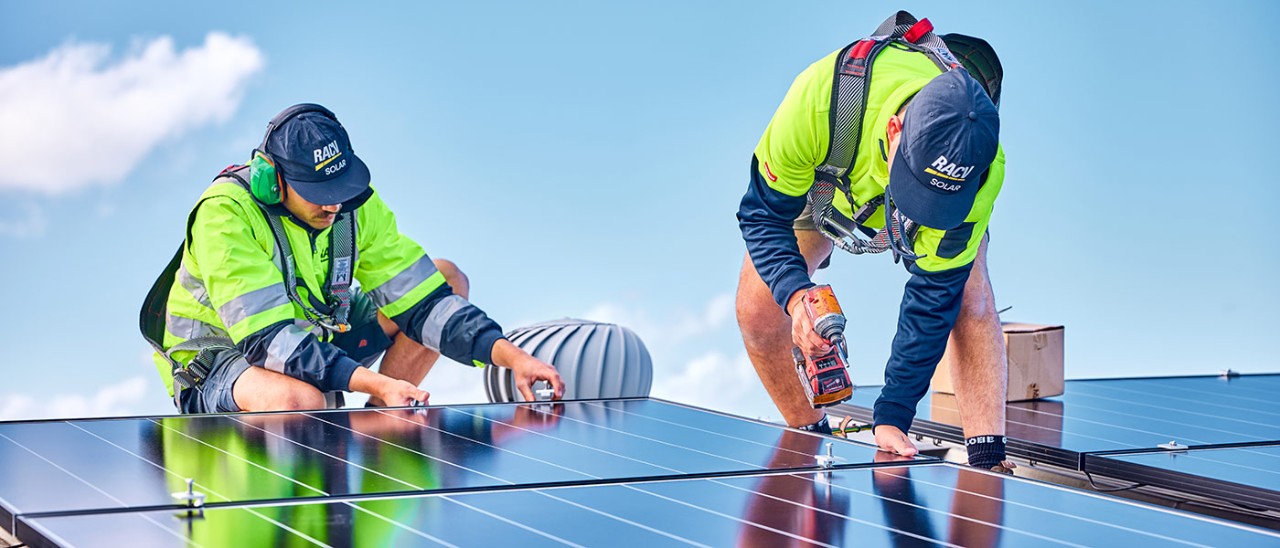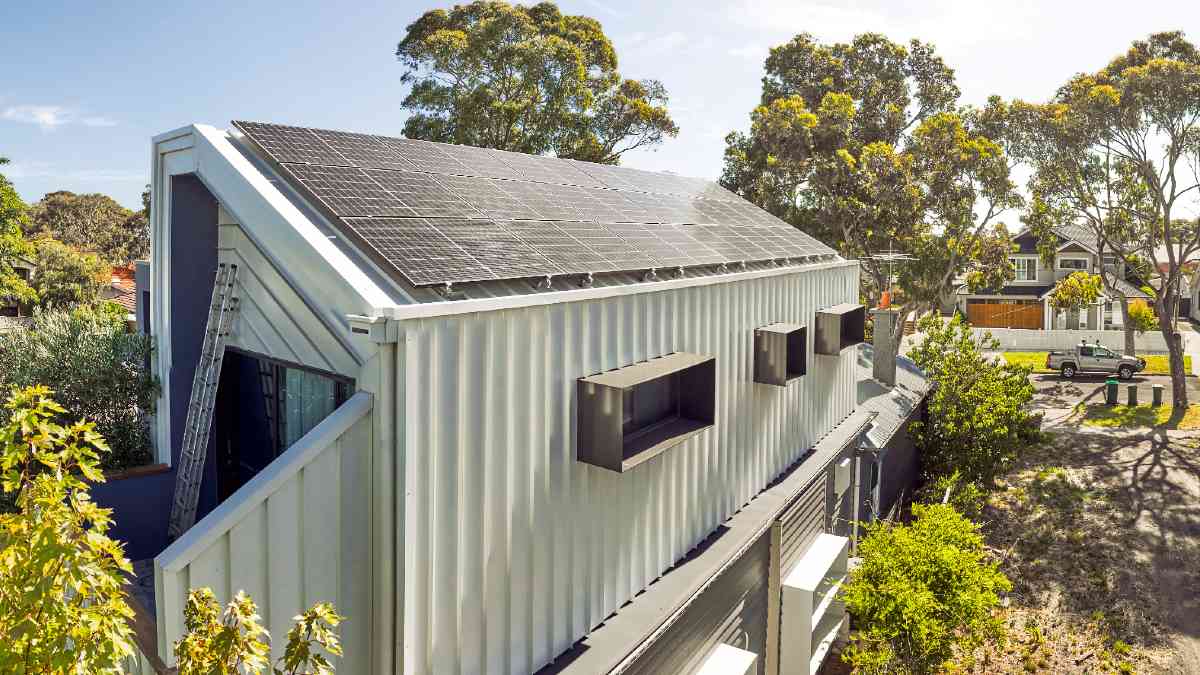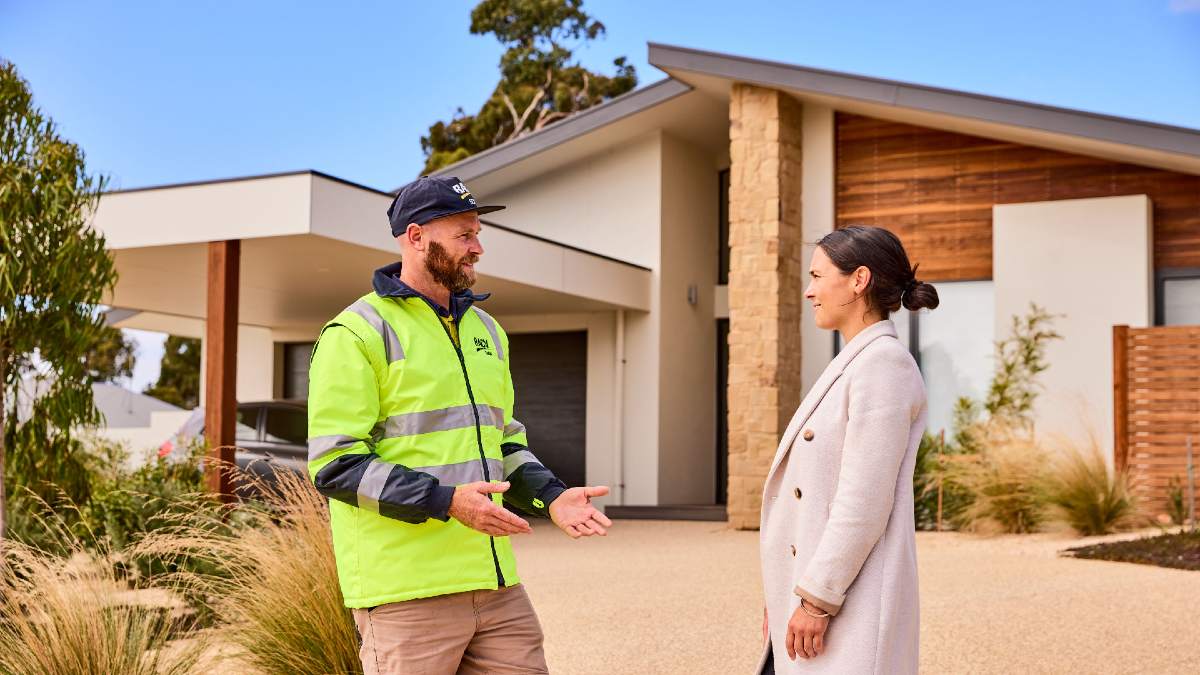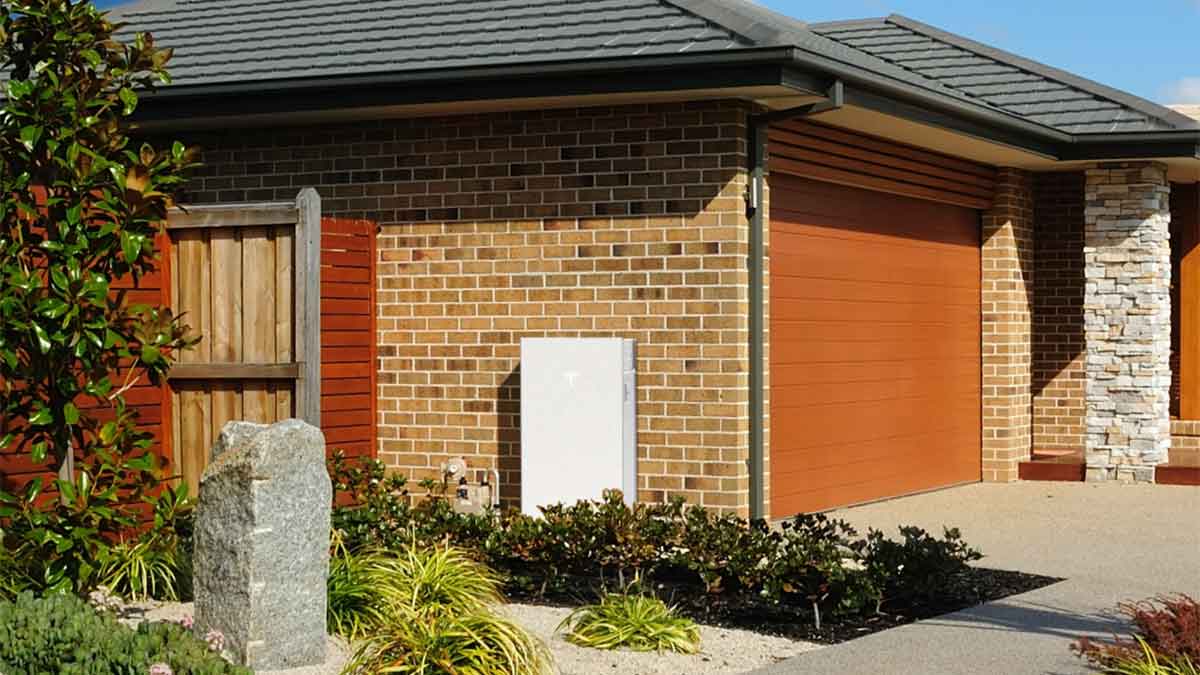The end of premium and minimum solar feed-in tariffs represents a shift in the financial landscape for solar energy users, but it also presents an opportunity to reassess and optimise your solar energy system.
Solar panel and battery rebates available in Victoria


There are solar incentives for rentals, community housing and apartments. Image: Matt Harvey
With the new Cheaper Home Batteries Program, Victorians can access additional government rebates and interest-free loans for installing batteries. Here's the ultimate guide to the latest solar rebates and interest-free loans for solar panels, solar batteries and hot water systems.
Making the switch to solar is an attractive proposition for households looking to reduce their energy bills. Going all-electric and installing a solar panel (PV) system can cut your energy bills by more than $1,000 a year, according to Solar Victoria. Furthermore, households that also install a solar battery system can save an average of $1,400 per year on power bills.
Although the cost of installing a solar panel (PV) system may seem high, Solar Victoria provides several incentives for eligible homes. If you’re considering installing a solar system on your property, it’s crucial to speak to the right solar provider. Here is a guide to the Victorian rebates and interest-free loans on offer, including the Cheaper Home Batteries Program.*
Jump to
What government incentives are there for solar? What is the eligibility criteria for a solar rebate?
Cheaper Home Batteries Program
Labor's $2.3 billion Cheaper Home Batteries Program, delivered through the existing Small-scale Renewable Energy Scheme (SRES), offers a 30 per cent discount on solar batteries from 5-50kWh capacity for households, businesses and community facilities like town halls or sports centres. The program comes without means testing and is available to upgrade existing solar systems with a solar battery, or to set up a new solar and battery system.
The scheme will officially start on 1 July 2025 (the new financial year). It can also be 'stacked' on to state discounts like the Solar Homes Program for even bigger savings.
This rebate is reduced from the total cost of your battery system, currently offered at around $372 per kilowatt-hour (kWh). The rebate is capped at 50kWh or an $18,500 rebate, and at one battery per household. A solar battery system up to 100kWh can be installed, but you will be capped at the maximum $18,500 rebate.
To apply, you need to use a Solar Accreditation Australia (SAA) approved installer and select a virtual power plant (VPP) capable battery system that is Clean Energy Council (CEC) approved. Your installer can help manage the application process.
Intended eligibility criteria has been developed to provide guidance on the likely settings of the Cheaper Home Batteries Program. Eligibility details will be confirmed in regulations and until then, requirements may change.
Solar Homes Program
Solar Victoria delivers the Victorian Government’s Solar Homes Program, which offers rebates and interest-free loans to help households save on solar and transition to efficient all-electric homes. There are three types of incentives for eligible Victorian households with existing homes or homes under construction:
- Solar panel (PV) rebate
- Solar panel (PV) interest-free loan
- Solar hot water system rebate.
Solar for Rentals Program
Solar-powered rental properties can ease energy costs for tenants while increasing the property's value. The Solar for Rentals program offers eligible rental properties a rebate up to $1,400 for the installation of solar panels (PV) on their property, plus the option of an interest-free loan to match the rebate amount.

Always talk to your solar retailer about eligible rebates.
Solar incentives for homeowners and occupiers
Solar panel (PV) rebate up to $1,400 (Solar Homes Program)
The Solar Homes Program's solar panel (PV) rebate offers Victorians up to a $1,400 rebate to install a solar panel (PV) system on their property. This rebate is accessible to existing homes as well as homes currently under construction.
Solar panel (PV) loans up to $1,400 (Solar Homes Program)
If you apply for the Solar Homes Program's solar panel rebate, you'll be offered an interest-free loan of up to $1,400 to help pay upfront costs. These loans must be paid back over a four-year period, but will incur no interest.
Solar battery rebate up to $18,500 (Cheaper Homes Battery Program)
The Cheaper Home Batteries Program offers a 30 per cent discount on solar batteries from 5-50kWh capacity for households. The program comes without means testing and is available to upgrade existing solar systems with a solar battery, or to set up a new solar and battery system. The scheme will officially start on 1 July 2025 (the new financial year), but is designed so that solar batteries can be purchased and installed from 6 April 2025, to be 'switched on' in the new financial year.
This rebate is reduced from the total cost of your battery system, currently offered at $372 per kilowatt-hour (kWh) . The rebate is capped at 50kWh or an $18,500 rebate, and at one battery per household. A solar battery system up to 100kWh can be installed, but you will be capped at the maximum $18,500 rebate.
Hot water rebate up to $1,000 (Solar Homes Program)
Water heating accounts for 23 per cent of total energy use in the home, according to the Australian Government website YourHome. An energy-efficient solar or heat pump hot water system can keep energy costs down. This $1,000 hot water system rebate takes a healthy chunk off the hot water system's retail price.
You don’t need to have solar panels installed to access this rebate, but you can also access the solar panel (PV) rebate if you want to install panels as well.

It maybe worthwhile finding out if you're eligible for a solar battery rebate or interest-free loan.
Solar incentives for rentals, community housing and apartments
Solar rebates for rental properties up to $1,400 (Solar Homes Program)
Solar can seem inaccessible if you’re renting, but there are avenues tenants can pursue. The final decision rests with your landlord, but as a tenant you can request that solar panels be installed.
Rental providers that install solar panels on their rental properties can access a rebate of up to $1,400, plus an interest-free loan to the same amount.
If rental providers successfully apply for the loan, tenants may contribute to the interest-free monthly repayments, with the presumption they will be saving money on their energy bills. These repayments are capped at $14.58 per month for the tenant. Landlords are not permitted to increase the rent or take money from their bond to pay for the solar system or any associated costs (e.g. installation or maintenance). Co-contributions end after four years or when tenants vacate the premises.
Solar for community housing up to $1,400/tenancy (Solar Homes Program)
Not-for-profit community housing organisations (CHOs) can apply for community housing solar panel (PV) rebates up to $1,400 per tenancy on their existing residential properties. This program not only helps shift the state towards cleaner energy, but also helps reduce energy bills for low-income Victorians. The rebate is capped at $1,400 or 50 per cent of the solar panel installation costs per individual residential rental agreeement.
What are small-scale technology certificates (STC)?
Small-scale technology certificates (commonly known as STCs as well as the Federal Rebate) are available Australia-wide and offer financial incentives for people to install small-scale solar systems like solar panels. STCs are also available for other renewable energy systems such as wind and hydro, as well as hot water systems, and now solar batteries.
The amount of the STC is calculated depending on your location, installation date and the amount of electricity generated by them (or in the case of water heaters, the amount of electricity displaced).
The discount is automatically applied by retailers when quoting the final price of their selected solar system, so you don’t need to apply and meet eligibility requirements like when accessing rebates.
*Rebate information valid as of 12 May 2025. Although we endeavour to keep this information up to date, we recommend that you also check the source sites for each rebate.


